Balázs Galkó
Nascimento : 1949-06-29, Budapest, Hungary
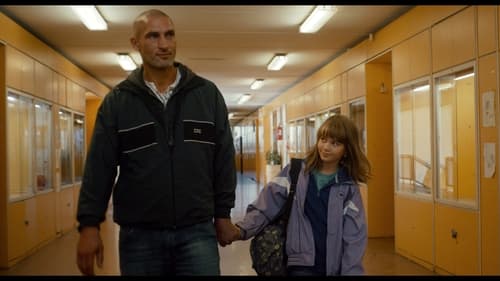
Grandfather
Tibor and Niki, father and daughter. The young girl was only five years old when they last saw each other, before Tibor was sent to prison. He is released seven years later and tries not to think about the past. Yet he can’t erase his daughter from his life and so they are compelled to start over from the beginning. Both are irresistibly charismatic, headstrong and irascible, but also determined to find a way back to one another.
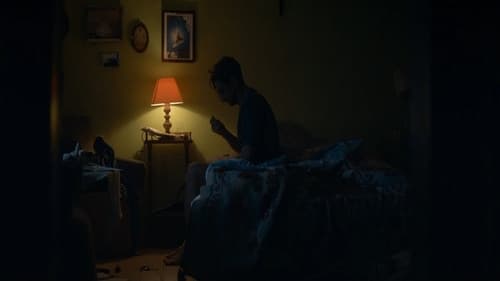
Old man

Uncle Zsigmond
Our story can begin anywhere where chances are rarely found to be able to survive and thrive, where small things matter by the end of the day and where people would want possess things that were never theirs to begin with. In this village where destitution and alcohol prevails, Leslie, (Laci), the world's greatest looser, recently released from prison starts to construct a football field and a chance for a better life. The slid down and alcoholic Veronica hopes to find happiness in her love for Leslie (Laci). Veronica’s nine years old son Mark acquaints the violin thanks to an old, burned-out musician, who has a fascinating and mysterious past. The stories of these four people intertwine drifting their life towards further tragic situations to crow by a surprising end.
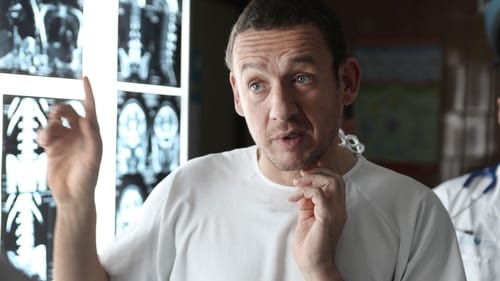
Anton's Lieutenant
Romain Faubert is a 39 year old, single, medical photographer... and a raging hypochondriac. His doctor and only friend Dr. Dimitri Zvenka thinks he knows the cure for Romain: dating! But with the arrival of freedom fighter Anton Miroslav, everyone might get more then they bargained for...

Station Porter
Young socialite Iris Carr befriends an older woman while traveling solo by train. When Iris wakes from a nap, the woman is gone and other passengers claim she never existed.
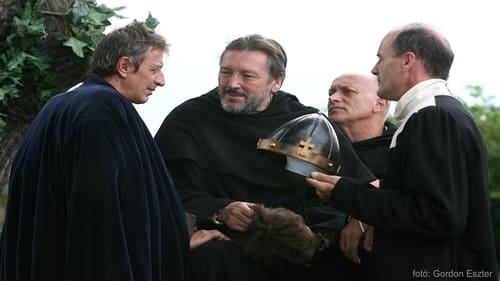
Hoppmester / Barnacsuhás
Concerning the Mátyás era in Hungarian history, during the reign of Matthias Corvinus (1443–1490), the film focuses on three eras of the king's life: the young Mátyás fights for the throne, the older Mátyás as king, and the fate of the royal crown and the royal heir after his death.

Priest
Jancsó’s farce, similar to the previous ones, is about our time and about death. Pepe marries into a family of mafiosi, with the father-in-law rolling in money. In a joint venture they establish the first Hungarian Prison Limited company, where there is a menu, the prisoners are residents, and they furnish the place of execution for those volunteering to execute themselves. It turns out that the first voluntary hanging should be demonstrated on Pepe. In 180 AD Emperor Marcus Aurelius is dying in Vindobona, being fed with blades of hay by uncle Miki himself, and his son Kornél Mundruczó. Kapa provides for communication: he insists on telling lies, lies and again lies. Furthermore, there are several to die and to revive, to win and to lose, and Melancholy Béla is still alive.

The film is composed around a violent incident, happened in 1956. Upon hearing the news that the Russians were approaching, the dwellers of the Home for the Disabled armed themselves. Followed by stares by people living in the area they marched along Hermina road, or went in wheelchairs, on crutches, hobbling, dragging rifles and a heavy machine-gun...

Priest
By the notes of Fiáth Pompeiusz, the one-time friend of Kapa and Pepe, Professor Szirtes has solved the secret of the time machine, and he realizes the invention relying on "special" H2O. Kapa and Pepe shall return by it into the past in order to set time right, which is out of joint, that is, to correct history, to save King Louis II, and prevent the Mohács Disaster. Pepe yields to the not too tender persuasion to enter upon the great journey through time, dies and revives, and they arrive at the battlefield of Mohács in time. Kapa films the events. The Turks win and cut off the king’s, Pepe’s, head, still the Hungarians dictate the peace treaty. Kapa and Pepe want to return, they fill the time machine up with water from the well, yet it won’t start. Even so Kapa and Pepe hover over Budapest and quarrel.

Galkó
This time, Kapa and Pepe are first of all prisoners of war – and convicts taken to forced labor service, Jews, Hungarian soldiers, German soldiers. Once they are to be executed, then again they are to perform executions. The film tells in spectacular episodes about the fact that in the past more than one century and a half we kept marching from war to war; occupation and liberation turned out to be indifferent, and why couldn’t the Jews execute the SS-guys? Our heroes hover about dilapidated barracks, then again on the bridges of the capital they guess whose satellites or eternal friends for all times we might be just now. In the cupboard, among the preserved fruit bottles, Stalin is still hiding. The authors of the film are cited before court, then in a showcase hospital they are waiting for the end to come. A Soviet soldier-maid closes the film with a Péter Nádas-quote.

Voice
Divided into four sections, "Song" is inspired by the Siberian and Finno-Ugric legends about Creation, in which the world begins with characters who are only half-human, one being half-bird, the other half-bear. The narrator delves into the origins of Hungarian culture, the Iranian and Turkish influences that impacted the society, and finally the story of Stephen, the emperor who brought Christianity to the country and shifted the capital west in an attempt to link with Europe.
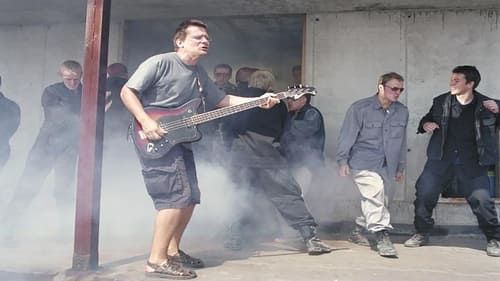
Galkó
Waiters’ competition at Heroes’ Square in the late thirties. Dressed as waiters, Kapa and Pepe awake in the bronze chariot of the millennial sculpture group. They drive along the Danube promenade, and on the concrete reinforcement of the demolished Budapest rondella hotel they get involved in a showdown of political background. In the burnt-down Sports Hall the waiters train for a last supper, Pepe and Kapa run around the big laid table with trays in their hands. While doing so, Pepe keeps crying out: "I am the best one, I am the most beautiful one, I am the king, I am the god..." Sitting in a boat on the Danube, a ship goes past them, and the Niagara falls, majestic and breathtaking, resound in their ears. On each passing away something new will come to life – as rapped by Sub Bass Monster.

Galkó
In the Kerepesi Street cemetery, three grave diggers contemplate the fate of the world, then they step out of this role and in a sequence of episodes they play the typical figures of contemporary Hungarian reality, the fat cat, the swashbuckler, the victim, underworld chieftains, and present little absurd dramas of love, marriage, friendship, public order and legal safety. The author and the film director walk among them all the time, contemplating, laughing at their plays. The stories starting from the graveyard and returning there warn of the inevitability of death. The author and the director (Gyula Hernádi and Miklós Jancsó) wisely make friends with death.

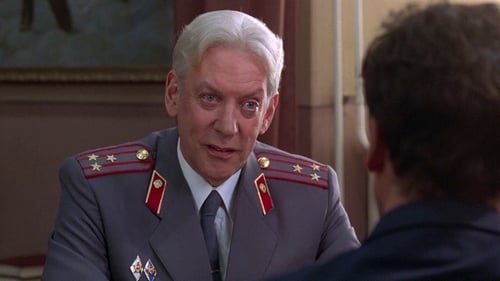
Station Drunk
Baseado na história real de um serial killer russo que, que ao longo dos anos, alegou ter matado mais de 50 pessoas. Suas vítimas eram na maioria menores de 17 anos. No que era então um estado comunista, as investigações policiais foram dificultadas pela burocracia, incompetência e pessoas no poder. A história é contada do ponto de vista do detetive responsável pelo caso.

Musician
Para alguns ele era um mago, um milagreiro; para outros era um charlatão, uma fraude. Suas teorias eram revolucionárias, mas ele foi rejeitado por seus contemporâneos e deportado de sua terra natal, Viena. Ele incendiou Paris, se tornou um renegado na medicina, um visionário, um vilão.
Franz Anton Mesmer Nasceu em 23 de maio de 1734, em Iznang, aldeia próxima do lago de Constança, filho do casal Franciscus Antonius Mesmer e Maria Ursula Michel, membros de uma grande família católica da Suábia, região que hoje pertence à Alemanha. Mesmer desencarnou em 5 de março de 1815.

Imre Horváth and his friends gather to celebrate his wife's birthday. They are confused because of the changes in the country's politics and want Horváth to be much more active politically, but he is more concerned about his affair with his best friend's daughter.
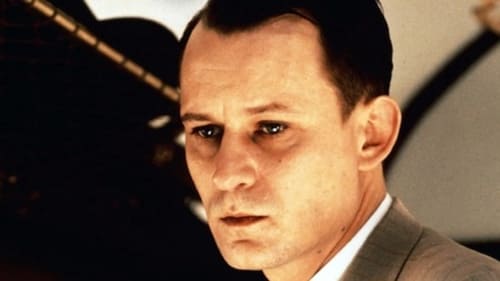
Mika
Swedish account of Raoul Wallenberg, the man responsible for the largest rescue of Jews during World War II.
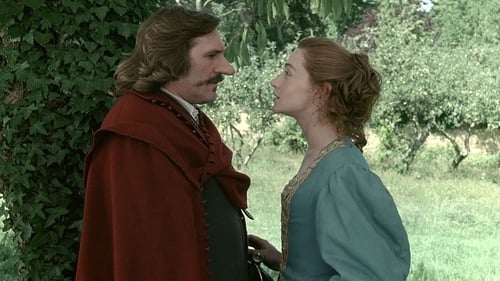
Um romântico poeta e arrojado oficial da guarda, Cyrano de Bergerac é apaixonado por sua prima Roxane sem que ela saiba. Sua maldição, ele acha, é o seu grande nariz e embora possa ter sido uma influência formando sua sagacidade na arte do florete, ele acredita que Roxane vai rejeitá-lo. Ele começa a escrever cartas a ela em nome de um de seus cadetes, Christian, que também é apaixonado por Roxane. Mas simplesmente nenhum dos dois sabe como dizer a ela. Ela se apaixona pelo charme poético das cartas, mas acredita que elas foram escritos por Christian.

1859. Exploiting the Austrian-French-Italian conflict, Kossuth sends Batiszy Kristóf back from the emigration to organize the Hungarian Legion. Batiszy's company gets into trouble, Austrians are waiting for them, Hungarian authorities chase them, people stand still. Demolition of the troop is the task of Görgényi László chief district administrator, who used to be an officer in the revolution once.

Hasfájós testvér
The poor but carefree vagabond Johnny meets the princess Árnika and they fall in love. An evil witch casts a spell on them which turns one of them into a duck. In order to be free of the spell they embark on a long journey to meet King Ajahtan Kutarbani, the only one who can lift the spell.

törzsvendég 2
A young boy feels lost in the world. He only finds solace in his imagination. But it’s getting harder to escape from reality.


















